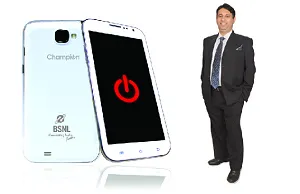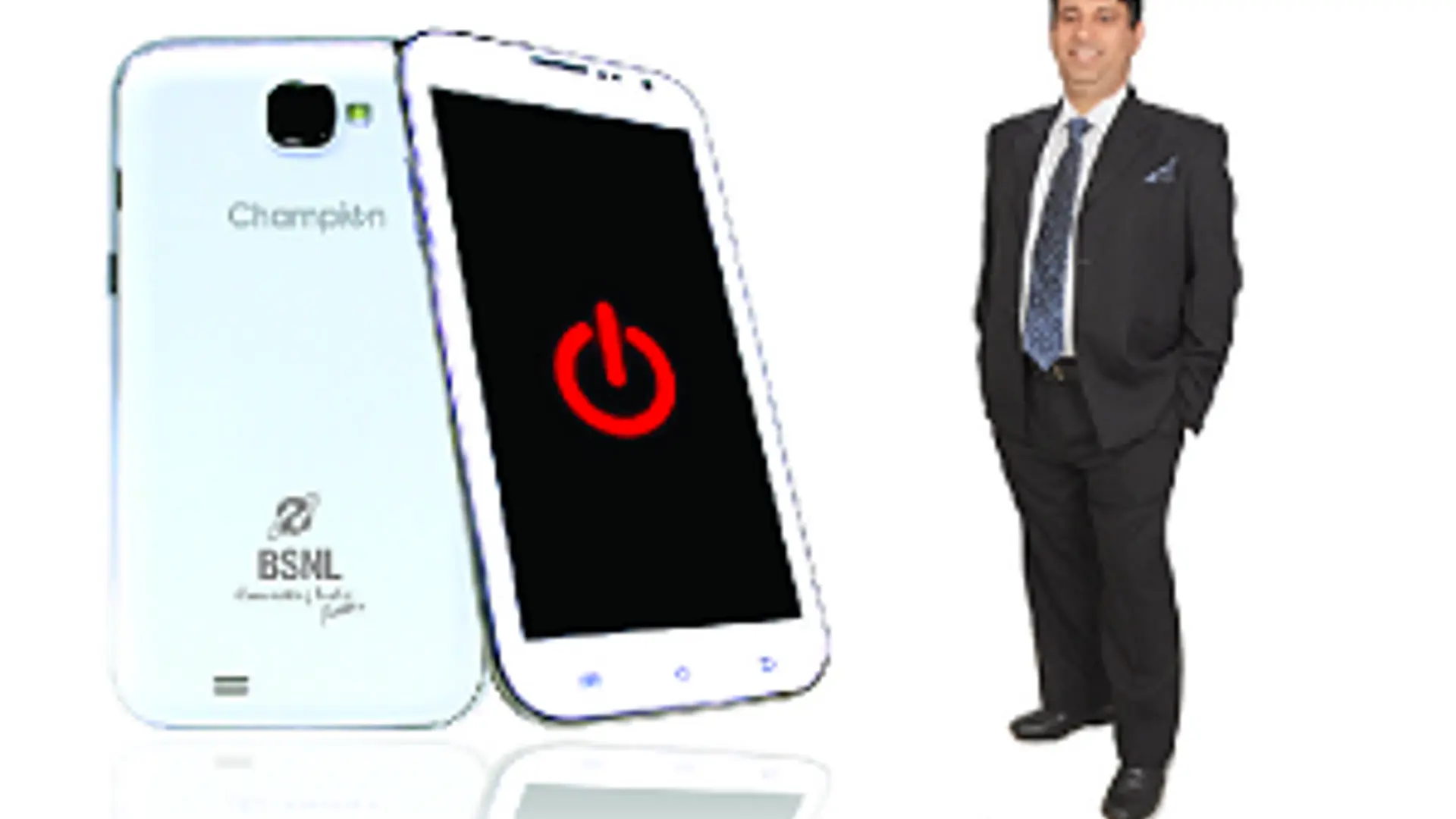Will the Indian mobile devices space see a new Champion?
What do you do when you have an IT distribution company that has been deeply entrenched in the Indian market for over 25 years? When you have a nationwide distribution network of 14 branches & 3,000 channel partners and your own manufacturing facility that has been rolling out laptops and computer peripherals? If you are Kapil Wadhwa, MD of Champion Computers, you enter the ultra high growth Indian mobile devices market. According to technology analyst firm Canalys, India recently became the world’s 3rd largest smartphone market with 2013 Q2 shipments hitting 9 mn devices - a growth of 129% over the same period in 2012. Another report by IDC stated that 2.66 mn tablets were sold in India in calendar year 2012 – a growth of 901% over 2011 – and this number is expected to hit 6 mn for 2013. Not surprisingly, 78% of these units sold in 2012 came from the low cost 7 inch tablets. Lucrative as these numbers may appear, the Indian smartphone and tablet market is not an easy one. Apart from the greatest global challenge of technology obsolescence, there is the added pressure of highly price sensitive consumers and an increasingly crowded competitive landscape, with entrenched players like Micromax & Karbonn and players like Lava, Xolo, Intex etc comprising a longish tail. But for entrepreneurs like Kapil Wadhwa, it is the opportunity and not the challenge that comes first. In a strategic move, Champion entered into an alliance with India’s 5th largest mobile service provder - BSNL - for co-branded products, clearly focussed on the company’s ~100 mn wireless subscribers.
Humble beginnings
Kapil Wadhwa completed his engineering and then did a BBA in Mumbai. Their small family business was not much to boast about but Kapil was clear that entrepreneurship was the way forward. His love for technology and gadgets drove him to start Champion Computers as a sole proprietorship firm in 1988, focussing on the distribution of PC components. Those who complain about how difficult it is to start and run a business in India today will get a major reality check from those like Kapil, who started even before liberalization. Coming from a middle class background at a time when VC only meant Vice Chancellor, funds were always an issue for the company. Kapil shared, “When you want to grow, you need money. If the need is X in order to grow to a particular size and you get only half of X, where do you go?” After a lot of struggle, Champion Computers was registered as a private limited company in 1994 and took on distributions for several brands like Samsung , Western Digital, Imation, Intel, LG, Compaq, HP and several others.
Birth of the Champion brand
After spending almost 10 years in the market, Kapil had established enough understanding of the market to target the market directly. In 1998, he registered Champion as a brand for computers & laptops. They were largely targeting B2B customers with their own branded products assembled at the company’s manufacturing facility in Baddi, Himachal Pradesh. The company faced several setbacks including the Y2K problem but Kapil stood steadfast in staying afloat. In a market that was already crowded, Champion carved a niche as a low cost, high reliability product. Importantly, Champion continued to grow its distribution business, and used this to cross-leverage sales of its own products. Today, Champion is a specialist supplier to system integrators and dealers with direct branches in 14 states. Champion is also an established brand for laptops ,motherboads, memory modules, mouses, keyboards, dvd writers etc.

Smartphones, Tablets & the BSNL alliance
Fast-forward to 2012-13, when Champion decided to enter the rapidly growing smartphone and tablet market. According to Kapil, Champion has 3 key advantages going into this market – strong understanding of the technology landscape especially in dealing with obsolescence, good internal R&D infrastructure and most importantly, deep relationships. The products will be largely targeted at customers in tier 2 & 3 cities, with some sales expected among smartphone aspirants in tier 1 cities as well. While pricing is typically the first thing that consumers in this segment look at, Champion does not aim to compete on price. “We will definitely be price competitive but not have the lowest priced products. This may create initial challenges in adoption but as customers try our products and see the quality, they will understand what we are about”, said Kapil. Champion is betting heavily on its alliance with BSNL, under which its products will be co-branded with the service provider. As part of this, BSNL will also bundle in several freebies like calling and data plans. The products will span the entire spectrum of consumer mobility devices including feature phones, smartphones, phablets, tablets and wireless datacards. With this alliance, Champion is looking to sell 200,000 units per month. The products will be sold using 4 channels – BSNL outlets, traditional dealers, large scale retail outlets and online. Champion believes that the BSNL outreach will give it a significant edge in reaching consumers in far-flung and rural areas. Whether Champion will be able to break in and make its mark in this fiercely competitive market will be something to be seen. If Kapil’s quarter century of resilience in similar competitive environments is anything to go buy, we will certainly have an interesting battle at hand!



